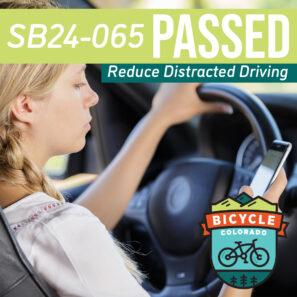Wrapping up the 2021 legislative session
The Colorado legislature’s second pandemic session was anything but normal. It began on January 13, in the wake of the insurrection at the U.S. Capitol, with state capitols around the country on edge. Legislators convened for three days to pass a quick flurry of emergency relief bills and went on hiatus until February 16, to wait out the worst winter days of the pandemic. Work resumed as vaccination opportunities were just becoming available, and centered on economic relief and big bill efforts like reducing healthcare costs, strengthening worker’s rights and reaching air quality goals. Policy debates on renter’s rights, guns, climate change and social justice dominated the session, which was extended over a month through June 8. When the dust settled, many bills were altered to find a successful path to passage, and a number of the majority party’s efforts failed at the finish line, including bills on workplace harassment and criminal justice reform.
At Bicycle Colorado, we began the session with our sights set to pass Safety Stop bicycle regulations statewide. The proposed bill would have increased safety and legalized common behavior at a time that made more sense now than ever, as we are in the middle of the biggest bike boom the country has ever seen.
It would increase safety by giving people on bikes the option to do what’s safest for them at intersections, and reduce the need for enforcement of low-level crimes that inhibit sustainable transportation and disproportionately affect Black and Brown Coloradans. We had compelling and simple legislation with bi-partisan champions ready to go at the outset, but the bill’s simplicity ultimately worked against it and we weren’t able to get it introduced amidst the many larger efforts. Though this was a disappointment, the legislation will be ready to compete again in 2022.
While our Safety Stop effort didn’t gain steam, we spent the bulk of the session working alongside environmental advocates to improve the funding buckets allocated in Senate Bill 21-260, the statewide transportation bill. The bill will raise over $5 billion for transportation projects through new fees related to road use, existing taxes and federal funds over the next 10 years. SB21-260 represents a full scale change to how Colorado funds the transportation system and sets the stage for polluter-pay approaches, a huge step forward from a reliance on the gas tax, which was last raised in 1991. Today the gas tax only funds a small portion of our transportation needs and will continue to diminish over time as vehicles and travel behaviors continue to evolve.
Wins on the expense side of the bill were the inclusion of eBikes in the electrification funding category, the dedicated funding stream for CDOT’s innovative Main Streets program that awards grants to local governments to create more walkable, bikeable downtown areas, and the ease with which local government can access almost half of the $5+ billion in funds should they choose to prioritize multimodal projects.
Where is the Safety Stop in place?
In Colorado:
- Aspen
- Berthoud
- Breckenridge
- Dillon
- Englewood
- Steamboat Springs
- Summit County
- Thornton
Nationwide:
- Idaho – 1982 (this maneuver is commonly called the Idaho Stop)
- Delaware – 2017, reaffirmed in 2021
- Arkansas – Adopted in 2019
- Oregon – 2019
- Washington State – 2020
- North Dakota – 2021
- Oklahoma – 2021
- Utah – 2021
- Virginia – 2021
Efforts we’re following in 2021:
- California
- New Jersey
- New York
Bolded communities above indicate communities that adopted after our 2018 law was enacted.
While our efforts helped to significantly improve the bill by safeguarding multi-modal buckets and adding millions more to these, we don’t believe the bill fully met the moment to shift funding to prioritize substantive change. The majority of the funds will continue to go to road projects that are not guaranteed to improve bicycling conditions.
Taking a stand on bike-related bills
We also tracked the full slate of legislative bills, identifying those that supported or weakened safety and accessibility for bicyclists. We defended against the removal of vulnerable user classifications from our 2019 Vulnerable User bill and supported the formal creation of a State Outdoor Recreation Industry Office. Learn a bit more about each, as well as some other notable transportation efforts we tracked, below.
House Bill 21-1039: Careless Driving Bodily Injury
Bill sponsors: Representatives Titone and Larsen
Bicycle Colorado position: Amend
Status: postponed indefinitely in the House Finance Committee
What the bill would have done: HB1039 would have eliminated the vulnerable user definitions previously established in law in 2019. While we want the ability under law to impose a 12-point driver’s license penalty to get bad drivers a driving “timeout,” it was important to protect the legal status of vulnerable road users that exists in current law.
Relevant links:
- Full text of House Bill 21-1039
- Full text of Senate Bill 19-175
- Colorado Is No Longer a Place Where Careless Drivers Get Away With Hurting People (Streetsblog Denver)
House Bill 21-1223: Create Outdoor Recreation Industry Office
Bill sponsors: Representatives McLachlan and Story. Senators Story and Coram
Bicycle Colorado position: Support
Status: signed by the Governor
What the act does: The Outdoor Recreation Industry Office was first established as a program by Governor Hickenlooper in 2015 to support the growth and health of the outdoor recreation economy and provide diverse recreation opportunities to improve Coloradans health, quality of life and local economy. HB1223 formally—and permanently—establishes it as a state office to support the outdoor recreation economy, such as Colorado’s iconic bicycle tours.
Relevant links:
Senate Bill 21-110: Revitalizing Main Streets
Bill sponsors: Representatives Zenzinger and Priola, Senators Herod and Exum
Bicycle Colorado position: Support
Status: signed by the Governor
What the Act does: The act transfers $30 million from the general fund to the state highway fund to provide additional funding for the Department of Transportation’s Revitalizing Main Streets and Safer Main Streets programs. This innovative program is helping localities build livable main streets with more biking and walking amenities, like La Junta’s new bike sharing program, Frisco’s Main Street Promenade, and Grand Junction’s Riverfront Trail bicycle wayfinding project.
Relevant links:
House Bill 21-1138: Restrict Off Highway Vehicles on Public Roads
Bill sponsors: Representatives McLachlan and Catlin, Senator Hisey
Bicycle Colorado position: Monitor
Status: signed by the Governor
What the Act does: The act prohibits the operation of off-highway vehicles (OHVs) on streets, roads and highways to preserve public peace, health and safety.*
Relevant Links:
*CDOT’s Transportation Commission allows Hindsdale County’s OHV pilot program on one 3 mile stretch of roadway to connect a popular OHV off-road trail system.
Want to get involved?
Join or renew as a member of Bicycle Colorado today and reach out to Communications and Policy Director Jack Todd to get involved in the conversation. You can reach Jack at jack@bicyclecolorado.org.
Leave A COMMENT
Our twitter feed is unavailable right now.
The Latest News
view all- Jun 13, 2024
- by Bicycle Colorado
Discover Denver With Denver Century Ride
- Bicycling in Colorado,
- Denver,
- Event Member Spotlight,
- Events
- No Comments








